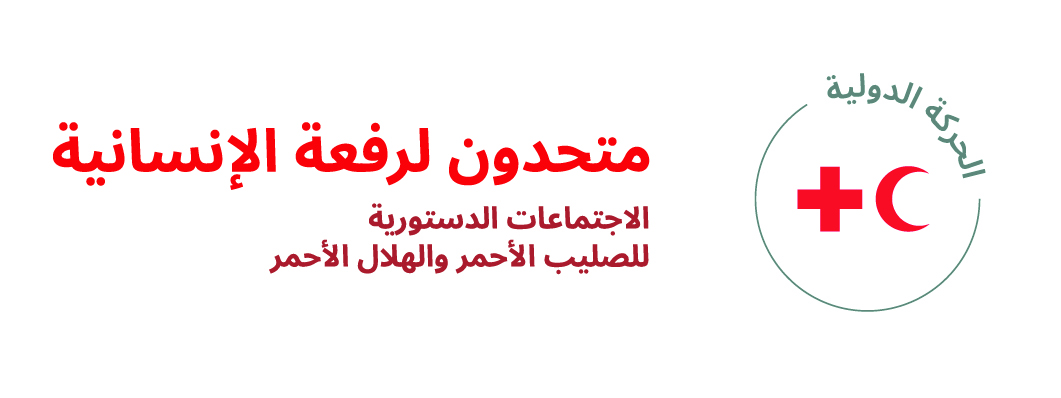هل الدولة/ الجمعية الوطنية/المؤسسة أدرجت الالتزامات الواردة في هذا القرار في الخطط الاستراتيجية أو التشغيلية ذات الصلة؟
نعمأُدرجت الالتزامات في كل مما يلي
السياسات
الخطط التشغيلية
التشريعات (على سبيل المثال، قانون، لوائح تنظيمية، نظام أساسي، نظام داخلي الخ..)
على المستوى الدولي, المستوى الوطني المستو
التفاصيل:
The Administration of the Republic of Slovenia for Civil Protection and Disaster Relief (hereinafter: URSZR) participated in the drafting of packages of measures aimed at mitigating the consequences of the epidemic within the area of its competence – protection, rescue, and relief. The National Plan for Protection and Rescue in the Outbreak of an Infectious Disease or Pandemic in Humans (version 2.0, No. 84200-2/2020/3 of 23 July 2020) has been drawn up. The National Plan includes cooperation of the Slovenian Red Cross and other humanitarian organisations in implementing the tasks related to protection, rescue, and relief in the event of an epidemic or pandemic in humans. The Ministry of Health drafted a plan of action for healthcare in the event of an epidemic or pandemic in humans in Slovenia. The plan is aimed at coordinating healthcare activities and facilitating cooperation with other stakeholders, including cooperation at both the national and international levels within the European Union. Since 2020, Slovenia has allocated a total of EUR 11.7 million to help developing countries grapple with the COVID-19 crisis. In 2020, we reprogrammed all development and humanitarian projects financed by the Ministry of Foreign Affairs, earmarking 20% of funds for the COVID-19 response. We donated material resources to partner countries and increased our humanitarian contributions to international organisations to mitigate the pandemic. The year 2021 saw several vaccine donations and a financial contribution to the COVAX Advance Market Commitment (AMC).
هل الدولة/ الجمعية الوطنية/المؤسسة تعمل مع شركاء آخرين من أجل تنفيذ الالتزامات الواردة في هذا القرار ؟
نعمعملت في شراكة مع:
الحكومة و/أو السلطات العامة
شركاء في العمل الإنساني والإنمائي (على سبيل المثال، الأمم المتحدة، منظمات غير حكومية الخ..)
جهات أكاديمية
أمثلة على التعاون مع شركاء:
In drawing up measures within the area of its competence, the URSZR collaborated with other state authorities both in the framework of prior consultations and through inter-ministerial coordination. It has been continuously cooperating with the interest public and keeping it informed, both when drafting the measures (preventively) and in their implementation (preparation of further clarifications). In drawing up measures within the area of its competence, the Ministry of Health collaborated with other state authorities both in the framework of prior consultations and through inter-ministerial coordination. The stakeholders include the Health Council, expanded professional boards, the National Institute of Public Health, health service providers, the health dispatch service, the National Laboratory of Health, Environment and Food, the Institute of Microbiology and Immunology of the Faculty of Medicine of the University of Ljubljana, the Agency for Medicinal Products and Medical Devices of the Republic of Slovenia, the Health Insurance Institute of Slovenia, and the Agency of the Republic of Slovenia for Commodity Reserves. We have been working with these institutions both when drafting the measures (preventively) and in their implementation (preparation of further clarifications). In addressing global health, Slovenia cooperates with various international organisations, namely Gavi, and others indirectly engaging on global health and the consequences of the pandemic. In 2020, Slovenia, in collaboration with NGOs, reprogrammed 20% of all foreseen activities in development cooperation and humanitarian aid by channelling them towards COVID-19 response.
هل واجهتم أية تحديات في تنفيذ الالتزامات الواردة في هذا القرار ؟
نعمتحديات بشأن:
الموارد البشرية
غياب القدرات و/أو الدعم (الدعم التقني أو المالي أو غيره)
غير ذلك
تفاصيل عن هذه التحديات:
Due to its unpredictability and scope, tackling epidemics and pandemics can be challenging in terms of developing strategic, legal or executive solutions. The scope and duration of public health prevention and protection measures are limited to what is strictly necessary to protect public health. All measures are thus objective and proportionate, duly justified, relevant, and specific according to the intensity of the epidemic. Despite a comprehensive and well-coordinated response, there is still a need for further strengthening resilience and increasing capacities of health systems in developing countries.
هل كان للالتزامات الواردة في هذا القرار أي آثار على عمل الدولة/ الجمعية الوطنية/المؤسسة وإدارتها؟
نعمنوع التأثير:
تعزّز التعاون بين الحكومة /السلطات العامة والجمعية الوطنية
أُبرمت شراكات مع جهات إنسانية فاعلة أخرى أو تحسّنت الشراكات القائمة
تفاصيل عن هذا التأثير:
The commitments of Resolution 3 constitute the guidelines that the URSZR takes into account when drawing up strategy papers and operational plans. The commitments of Resolution 3 constitute the guidelines that the Ministry of Health takes into account when drawing up strategy papers and operational plans. In addition, the Ministry of Health monitors the situation regarding communicable diseases both in the country and abroad, informing the relevant authorities thereof. It also adopts programmes, coordinates the work, and imposes measures aimed at implementing programmes in the area of curbing and preventing the spread of communicable diseases and epidemics. Enhanced cooperation has been established with other ministries as well as with NGOs.
5- هل كان للالتزامات الواردة في هذا القرار أي آثار على المجتمعات المحلية التي تستفيد من خدمات الدولة/ الجمعية الوطنية/المؤسسة؟
نعموصف هذا التأثير:
The commitments under the Resolution that become part of strategy papers or operational plans can be applied directly by users and are binding in such cases. Managing epidemics by transitioning to a monitored virus incidence in the population has caused a shift of the risk, thus exposing unprotected and vulnerable groups. The Ministry of Health therefore strives towards continuous empowerment of these groups and social consensus on sensible, acceptable, and understandable measures (promotion of protective behaviour, vaccination, access to rapid tests, etc.). These are the key risk-reducing factors, but we are also strengthening an inclusive dialogue.



